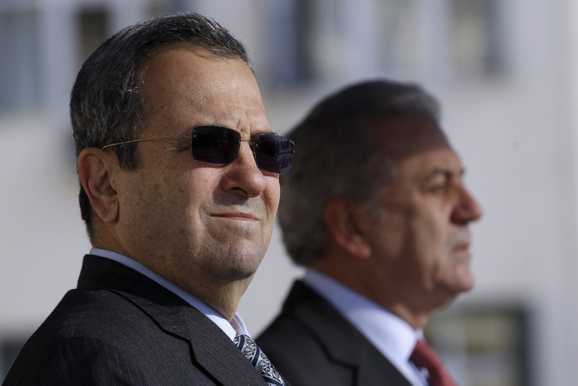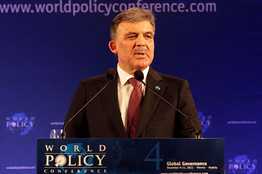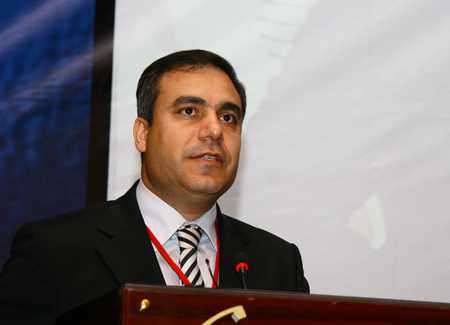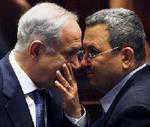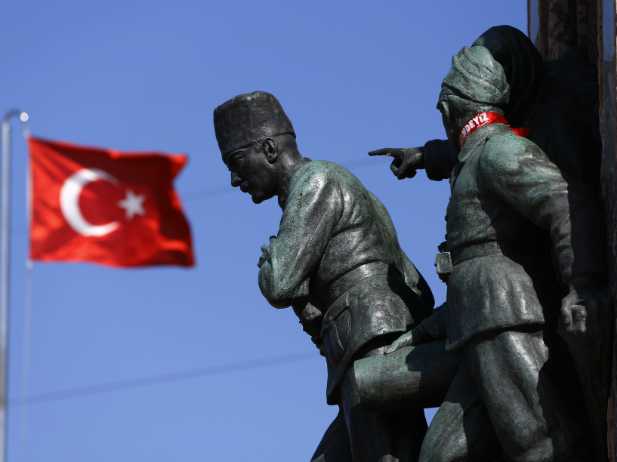
A Turkish flag flutters near the monument of Mustafa Kemal Ataturk at Taksim Square in Istanbul June 24, 2013 (Marko Djurica/Courtesy Reuters).
by Steven A. Cook
I co-authored this piece with my friend and colleague, Michael Koplow, author of the blog Ottomans and Zionists.
Ehud Barak’s political instincts have never been great, but his security instincts are generally top-notch. So when he warned in 2010 that any intelligence information shared with Turkey might be passed on to Iran, his fears may not have been completely unfounded. David Ignatius reported yesterday that in 2012, Turkey deliberately blew the cover of ten Iranians who were working as Israeli agents and exposed their identities to the Iranian government. Ignatius also wrote that in the wake of the incident, which was obviously a large intelligence setback for efforts to halt Iran’s nuclear program, the United States did not protest directly to Turkey and instead walled off intelligence issues from broader policymaking.
There are lots of questions that Ignatius’s report raises, and it will take some time to parse them out and figure out the answers. First and foremost is the report completely accurate? This is a very big deal if true, and it casts increasingly cool U.S. behavior toward Turkey over the past year in a more interesting light, yet it also makes it puzzling to figure out how something like this was kept quiet. Likewise, it is tough to see how and why the United States would separate intelligence issues from larger policy issues in the wake of such a huge betrayal of an important U.S. intelligence ally. Especially when such duplicity amounts to a purposeful blow to joint American-Israeli aims to slow down Iran’s nuclear program.
Next, who are the sources for this story, and why leak the story now? If this new information came from the United States, then it indicates that someone has finally had it with Turkey turning a blind eye to (if not actively enabling) a growing al Qaeda presence in Syria, and anger over Turkey’s deal to buy a missile defense system from a Chinese firm already under sanctions rather than from NATO. The flip side to this is that if it is a U.S. government source fed up with Turkish behavior, it also does not cast the United States in a great light given the lack of an official reaction following Turkey’s exposure of Israeli intelligence assets. If the leak came from the Israeli side, then the timing is strange since there would have been little reason to hold this information until now, as Israeli-Turkish relations were at their absolute low point. The only plausible reason for Israel to leak this now would be if it came from someone who is disenchanted with Bibi Netanyahu’s efforts to patch things up with Turkey, as these allegations are deeply embarrassing in light of the Mavi Marmara apology.
Questions aside, and assuming that the veracity of the report– and so far no American or Israeli official has publicly denied it – the bigger picture here is not the future of Israel-Turkey ties, but how the United States views Turkey. It is important to remember that from its earliest days the Obama administration sought to rebuild and strengthen ties with Ankara during a particularly difficult period that coincided with the American occupation of Iraq and the return of PKK terrorism. The Turks got a presidential visit and speech to the Grand National Assembly, Obama punted on his promise to recognize the Armenian genocide, and more broadly brought a new energy and urgency to a partnership that American officials hoped would work to achieve common goals in a swath of the globe from the Balkans to Central Asia.
What started off well-enough quickly ran into trouble. By the spring of 2010, the Turks had negotiated a separate nuclear deal with Iran (and the Brazilians) that the administration claimed it had not authorized and voted against additional UN Security Council sanctions on Tehran. Then the Mavi Marmara incident happened, further complicating Washington’s relations with both Ankara and Jerusalem. A “reset” of sorts occurred on the sidelines of the September 2010 G-20 summit in Toronto with a meeting in which President Obama and Prime Minister Erdogan talked tough with each other and cleared the air, setting the stage for what Turkish officials like to describe as a “golden age” in relations. Even so, despite the apparent mutual respect—even friendship—between President Obama and Prime Minister Erdogan, there was a sense that the Turks did not share interests and goals as much as advertised. For example, there was Erdogan’s visit to Tehran in June 2010 when he implicitly justified Iran’s nuclear program. There were also difficult negotiations over a NATO early warning radar system on Turkish territory and after Ankara finally agreed, last minute needless wrangling over Israeli access to the data from the system .
More recently, Turkey has spurned its NATO allies in order to build a missile defense system with China. Ankara has also been enormously unhelpful on Syria, even working at cross-purposes against current U.S. aims. The Turks have complicated efforts to solve the political crisis in Egypt by insisting that deposed President Mohammed Morsi be returned to office and thus only further destabilizing Egyptian politics. In addition, these new revelations (along with ongoing efforts to get around sanctions on Iranian oil and gas) make it clear that Turkey has been actively assisting Iran in flouting American attempts to set back Iran’s nuclear capabilities. The state-owned Halk Bank was, until recently, involved in clearing financial transactions for Iranian counterparts, though Istanbul’s gold traders continue to do a robust business with Iran. And this all comes on top of the general fallout that has ensued as a result of Turkey doing everything in its power to take shots at Israel (which, no matter if some Turkish analysts want to argue that Ankara is more strategically valuable to the U.S. than Jerusalem, is a critical U.S. ally), whether it be absurdly blaming Israel for the coup in Egypt or preventing Israel from participating in NATO forums.
Considering Turkey’s record, how can the Obama administration continue to tout Turkey as a “model partner” or even treat it as an ally? Not a single one of its goals for Turkey—anchoring Turkey in NATO and the West; advancing U.S. national security goals such as non-proliferation, counter-terrorism, and promoting democracy; and holding Turkey out a “model” of a secular democracy—have been met. Ignatius’s recent revelation, if true, undermine the first two goals. As for the third, Erdogan’s continuing harsh crackdown on protesters resulting from last summer’s Gezi Park demonstrations, pressure on journalists, efforts to intimidate civil society organizations, and other efforts to silence critics makes Turkey a negative example for countries struggling to build more just and open societies. We have crossed the line of reasonable disagreement and arrived at a point where Turkey is very clearly and very actively working to subvert American aims in the Middle East on a host of issues. That Erdogan and/or his intelligence chief, Hakan Fidan, were willing to undermine a broad Western effort to stop Iran’s nuclear development for no other reason than to stick it to Israel should be a wake-up call as to whether the current Turkish government can be trusted as a partner on anything.

